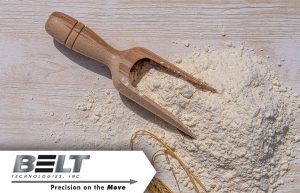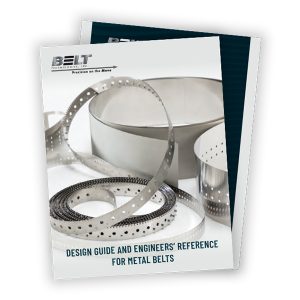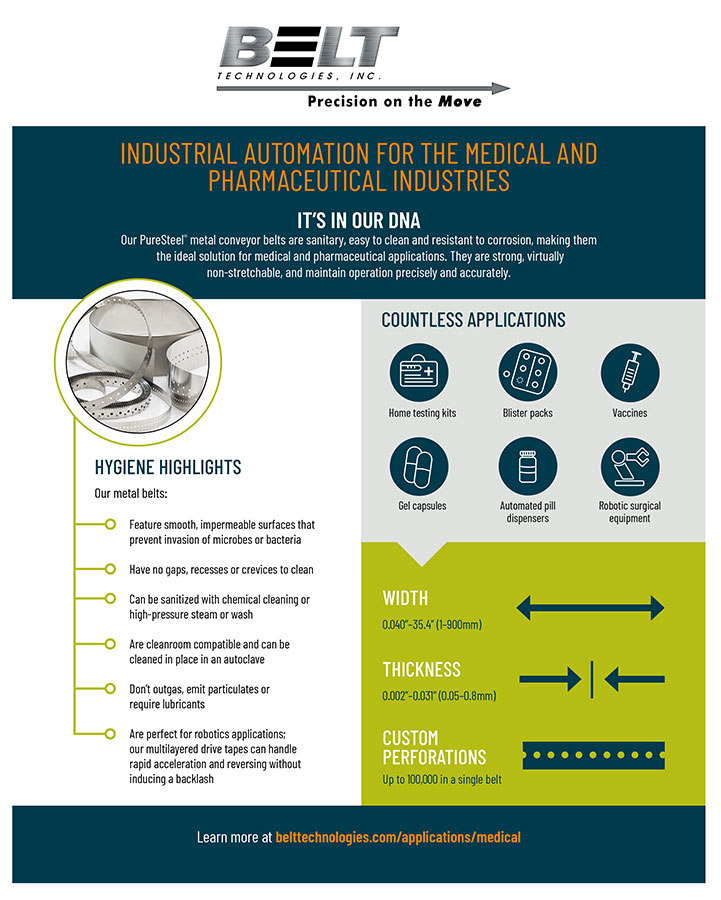 Due to their unique physical properties, fine powders and other bulk solids can be some of the most challenging materials to handle in any facility—especially on a conveyor line. With a countless number of fine particulates that could cause issues, any conveyor system used in these operations must be sanitary, easy to clean and durable; rubber and plastic aren’t up to the task. In this blog we explain why our stainless steel PureSteel® Belts are the perfect match for bulk solids.
Due to their unique physical properties, fine powders and other bulk solids can be some of the most challenging materials to handle in any facility—especially on a conveyor line. With a countless number of fine particulates that could cause issues, any conveyor system used in these operations must be sanitary, easy to clean and durable; rubber and plastic aren’t up to the task. In this blog we explain why our stainless steel PureSteel® Belts are the perfect match for bulk solids.
But first, what exactly fits in the “bulk solids” category? Essentially, it’s any collection of loose, dry commodities like sugar, starch, chemicals, plastic resins or recycled plastics. According to Kansas State University, these materials actually consist of more than 80% of items transported around the world!
A Focus on Cleanliness
Many of these products, since they can be categorized as food or chemicals, require a clean surface. Stainless steel belts are resistant to bacteria due to their flat and nonporous surface, making them easy to clean and compliant with even the strictest United States Department of Agriculture (USDA) requirements. Other belt materials can’t compare, as they allow bacterial buildup in crevices and small holes, or even in the gaps between belt components.
Regardless of how resistant they are, all belts need to be cleaned and cleared of food debris eventually to prevent contamination—and no material is easier to clean than stainless steel. Due to their resistance to chemical corrosion, stainless steel belts can be cleaned-in-place (CIP) with almost any cleaning or sterilization method—such as high-powered steam, chemical cleaning solutions and high-pressure wash.
Durability to Prevent Contamination
Stainless steel belts are also durable—they don’t generate particulate, so they won’t create dust that could impact production in a cleanroom environment. Alternative belts often incorporate fibers for added strength, which may rub against conveyor guides or rough edges, detaching small particulates which may then contaminate your fiber or bulk solid. Not only do stainless steel belts require less maintenance, but they also don’t require lubrication to operate. It’s another feature that lowers the risk of contamination to the product.
A Clean, Complete and Contained Solution
If you’re concerned about the containment of your product, our belts can be equipped with food grade v-guides on either side to help hold all the material in. The end result is a clean, complete and contained bulk solid at the end of your conveyor. Are you interested in learning more about how these belts can help to benefit your specific application? Contact us today; our team would be glad to help you achieve a solution.



